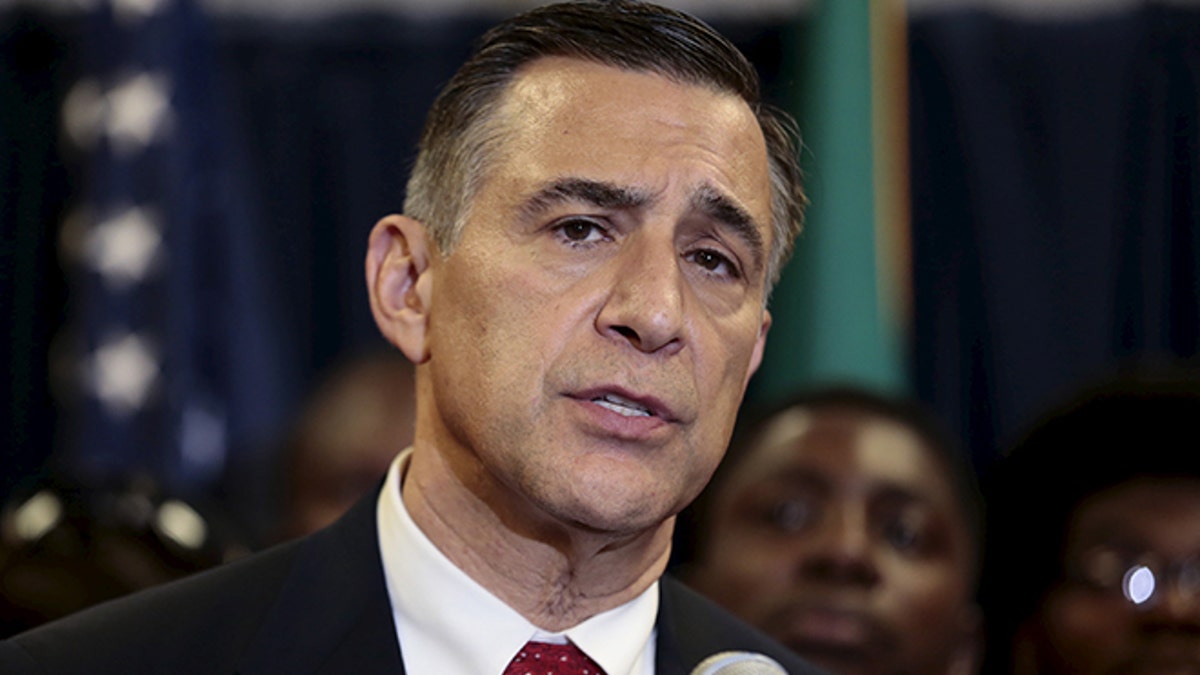
Head of a U.S. Congressional delegation to Nigeria Darrell Edward Issa speaks during a new conference during a visit by the delegation to Abuja, as part of efforts by the U.S. to enhance cooperation between both countries in tackling the Boko Haram in Nigeria August 4, 2015. REUTERS/Afolabi Sotunde - RTX1MZPO (REUTERS)
The House Judiciary Committee this week advanced a bipartisan bill to discourage American companies from relying too heavily on skilled workers from overseas.
Such workers hold H-1B visas -- special permits that allow American companies to hire foreign workers for specialized occupations in science and technology. H-1B visas are common among tech firms in California's Silicon Valley, for example.
The “Protect and Grow American Jobs Act” was originally introduced in January by U.S. Reps. Darrell Issa, R-Calif., and Scott Peters, D-Calif., to discourage American companies from relying too heavily on H-1B workers.
“Unfortunately, loopholes in the program have allowed a small handful of employers to game the system to displace American workers, and crowd out others who legitimately need the limited slots ... to recruit individuals with unique skill sets not available here at home,” Issa said in a statement.
"Unfortunately, loopholes in the [H-1B] program have allowed a small handful of employers to game the system to displace American workers."
The bill would effectively cap the number of H-1B holders in the U.S. labor force at 20 percent. Companies with a workforce of more than 15 percent H-1B holders are deemed, “dependent,” Fortune noted.
The proposal also would raise the minimum salary for H-1B holders from $60,000 to $90,000.
Employers would be required to send reports to the Department of Labor regarding their efforts to prioritize American workers over foreigners. Companies highly dependent upon H-1B workers would face the possibility of spontaneous investigations by the Department of Labor and be prohibited from replacing American workers with H-1B workers, the San Francisco Chronicle reported.
The bill now awaits a full House vote. If approved, it will move on to the Senate Judiciary Committee, and finally the upper chamber. If it survives those hurdles, it will move to President Donald Trump's desk for his signature or veto.












































